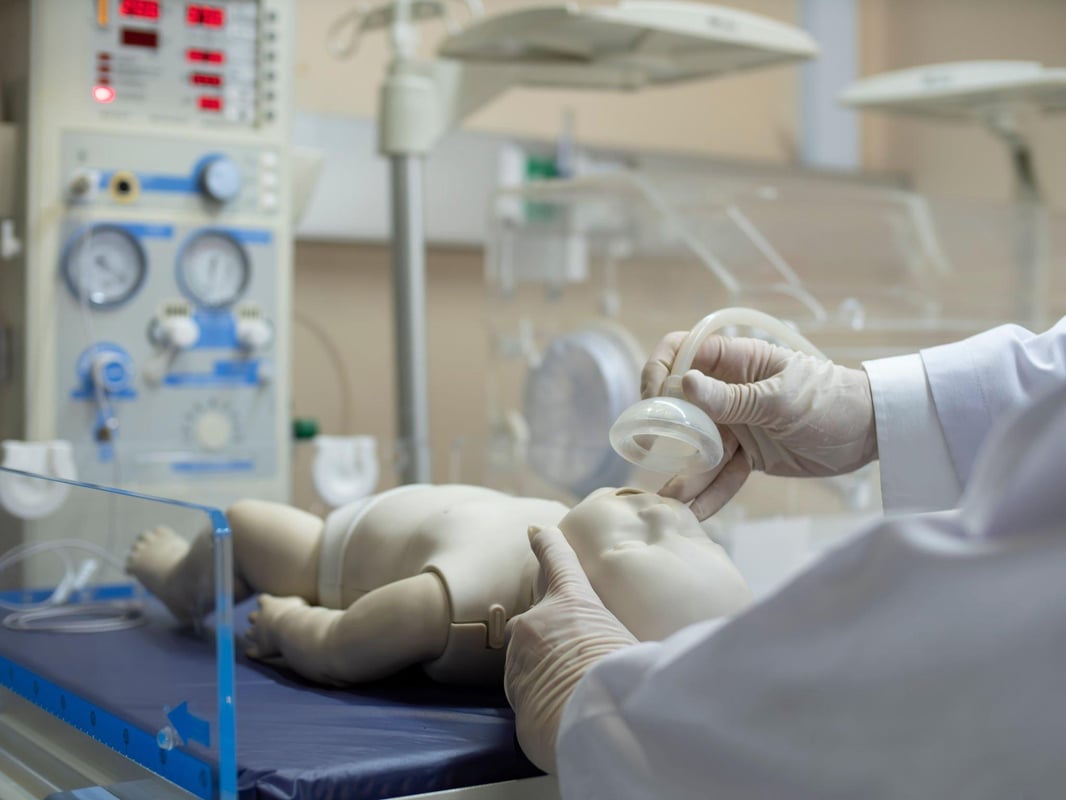
Financial aid (may be available)

Financial aid (may be available)

Financial aid (may be available)

Financial aid (may be available)
$276 total
$2,075 total
$270 total
$410 total
$365 total
$150 total
No cost info
$285 total
$150 total
No cost info
If you're in Madison and are looking for Pediatric Advanced Life Support (PALS) classes, you've come to the right place. This guide will provide you with key information about PALS, the training requirements, what to look for in a class, and the certification process. It will also guide you on how to find related jobs and what other classes you can take after becoming a PALS.

Pediatric Advanced Life Support (PALS) is a training program developed for healthcare professionals who respond to emergencies in infants and children. These include personnel in emergency response, emergency medicine, intensive care, and critical care units. PALS emphasizes the importance of a systematic approach to pediatric assessment, basic life support, PALS treatment algorithms, effective resuscitation, and team dynamics.
Before signing up for a PALS class, it's crucial to understand the training requirements:
Basic Life Support (BLS) Certification: This is a prerequisite for taking a PALS class. BLS provides the fundamental skills of CPR and relief of choking.
Healthcare Experience: PALS classes are advanced courses that require a strong understanding of medical terminology and procedures. Therefore, it's beneficial if you have experience in the healthcare field.
Finding the right PALS class near you in Madison requires careful consideration. Here's what you should look for:
Accreditation: Make sure the class is accredited by a recognized institution. Accreditation ensures that the course meets specific standards and that your certification will be recognized.
Experienced Instructors: The instructors should be experienced healthcare professionals who can provide real-life insights and hands-on training.
Comprehensive Curriculum: The course should cover all necessary topics, including pediatric assessment, basic life support, PALS treatment algorithms, effective resuscitation, and team dynamics.
Day-to-day PALS classes can be intense but rewarding. Here's what you can expect:
Lectures: The class will include lectures on various topics, including how to recognize and treat life-threatening conditions like cardiac arrest and respiratory failure.
Hands-on Training: You'll get the opportunity to practice procedures and use equipment under the supervision of your instructors.
Simulated Scenarios: To prepare you for real-life emergencies, the class will include simulated scenarios where you'll have to apply your knowledge and skills.
After completing the PALS class, you'll need to sit for an exam to get certified. The exam typically includes a written test and a skills test. Upon passing the exam, you'll receive your PALS certification, which is usually valid for two years.
Once you have your PALS certification, you can start searching for related jobs in Madison. The healthcare industry offers numerous opportunities for certified professionals. From hospitals to private clinics and emergency response teams, you can find roles that require PALS certification.
After becoming PALS certified, you can consider taking additional healthcare classes to further your career. Here are some options:
Advanced Cardiovascular Life Support (ACLS): This course focuses on the management of cardiac arrest, arrhythmias, acute coronary syndromes, stroke, and more.
Neonatal Resuscitation Program (NRP): NRP is designed for healthcare professionals involved in the delivery and care of newborns.
Critical Care Nursing: This course provides the skills and knowledge needed to care for critically ill patients.
After completing your PALS certification, becoming a Certified Medication Aide can be an excellent next step. This role involves administering medication under the supervision of a registered nurse, making it a suitable choice for those who enjoy hands-on patient care.
If you're interested in a fast-paced, challenging role in healthcare, consider becoming an Emergency Medical Technician (EMT). This position involves providing emergency medical care to patients in pre-hospital settings, and PALS certification can be beneficial in this role.
A Respiratory Therapist is another excellent career option for those with PALS certification. This role involves assessing and treating patients with breathing disorders, which often includes pediatric patients.
Surgical Technicians play a vital role in the operating room, assisting surgeons and nurses during procedures. If you're interested in surgery and want a hands-on role, this could be a great next step after your PALS certification.
The path to becoming PALS certified requires dedication and commitment. However, the reward of being able to provide life-saving care to infants and children is unparalleled. Whether you're looking to advance your career in healthcare or are just beginning, PALS certification offers numerous opportunities for growth and development. With the information in this guide, you're now better equipped to start your journey.
Explore Dreambound's in-depth guides, each shedding light on the unique requirements and challenges in cities across the US. For more insights, be sure to check out our other guides.
Exploring a variety of professional opportunities? Dreambound has many extensive guides to help you make informed decisions. Check out these guides:
Dreambound's platform allows prospective students to find the right educational program for them through searching, filtering, and connecting with our extensive selection of career & technical education partners.
Dreambound has over 70 programs across healthcare, technology, business, and industrial trades. This includes programs such as Medical Billing, Cybersecurity, and welding.
Some of our schools offer financial aid for those who qualify. Many others offer payment plans, where you can pay the cost of class over time.
Yes, Dreambound offers many online programs. On Dreambound's search, you can filter by online, in-person, and hybrid (part online, part in-person).
Dreambound is completely free for you to use! We are supported by schools and organizations who pay to advertise on our website, so we can offer all of our career resources for free.